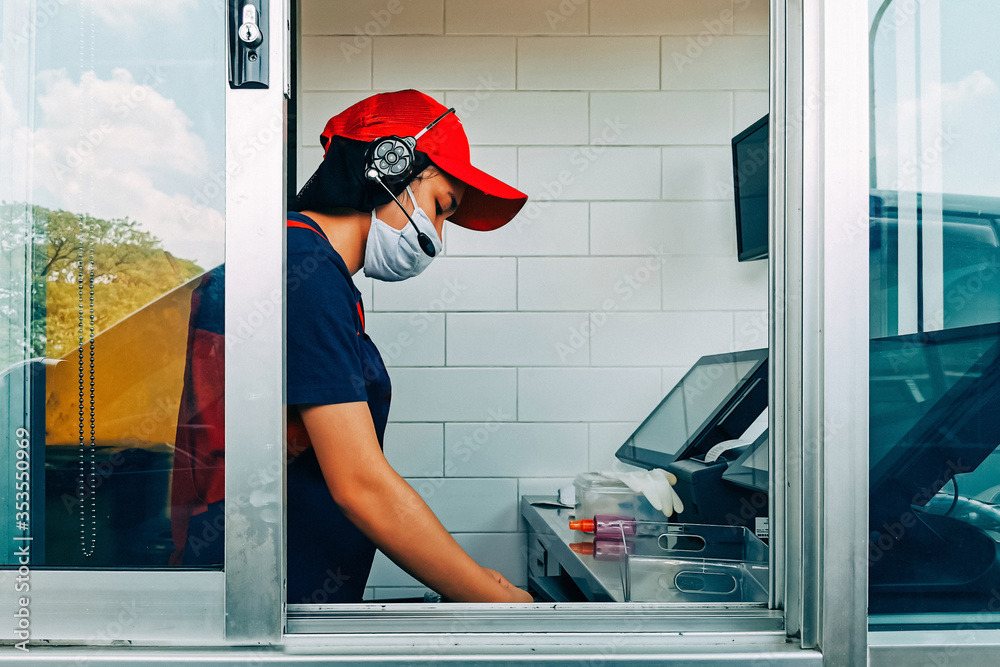After California raised the minimum wage for fast-food employees to $20, fast-food chains are raising food prices, passing the burden on to customers.
Many fast-food chains have increased menu prices by up to 8% in response to the $20 per hour minimum wage, according to Kalinowski Equity Research (KER).
KER surveyed 25 fast-food chains for price increases between February 7 and April 2.

Wendy’s had the largest price increase at 8%, according to the study. This was followed by Chipotle at 7.5%, Starbucks at 7%, Taco Bell at 3%, In-N-Out at 3%, and Burger King at 2%.
Looking at specific menu item price comparisons, Burger King increased the average price of a Whopper Meal by 1.4% and the average price of a Burger King Royal Crispy Chicken Sandwich Meal by 2.1% across 25 locations.
The Texas Double Whopper Combo also jumped 12%, from $15.09 to $16.89 and notably, Big Fish jumped 53%, from $7.49 to $11.49.
Chipotle, which operates nearly 500 locations in California, also increased its chicken burritos by 8.3% and steak burritos by 7%. Now, customers will have to pay $10.25 for a chicken burrito and $12 for a steak burrito at Chipotle in California.
KER also analyzed the price difference at Starbucks between Venti Iced Caramel Macchiato and Venti Cafe Latte at 20 Starbucks locations in California.
The report found that the average price of a Venti Iced Caramel Macchiato increased by 7.2%. The average price increase for Venti Cafe Lattes was also around 7%.
Wendy’s increased prices on key menu items, including the Dave’s Combo and Classic Chicken Sandwich Combo. At 25 Wendy’s locations, both items increased by an average of 8%.
McDonald’s was the only fast-food franchise to hold off on price increases, but still, the average price of McCrispy increased by 0.7% during the survey period.
In-N-Out Burger, a popular California-based restaurant, raised the price of hamburgers and sodas on its combo menu.
A cheeseburger went from $3.95 to $4.10, a hamburger from $3.50 to $3.60, and a double-double from $5.65 to $5.90, an increase of about 25 cents. However, French fries ($2.30), milk (99 cents), hot cocoa ($2.20), and coffee ($1.35) remained unchanged.
Fast-food prices in California were among the highest in the nation even before the minimum wage increase.
Fast-food prices in California increased an average of 7% in the six months ending March, according to Datacentric, which tracks the fast-food industry’s food prices. This is the highest increase in the country. By region within California, prices rose 7.6% in general Southern California, 6.7% in Northern Orange County, 6.5% in Southern Orange County, and 6.4% in Los Angeles County.
The average increase for fast-food restaurants nationwide was 4.5%. That is 36% higher than the 3.3% increase at other typical restaurants in California.
In fact, fast-food price hikes are outpacing that of inflation.
Fast-food prices have increased at twice the rate of inflation over the past decade, according to a new analysis by FinanceBuzz.
Over the past decade since 2014, major franchises have increased prices by up to 100%. McDonald’s raised prices by 100%, Papa John’s by 86%, Taco Bell by 81%, Chipotle by 75%, Burger King, Chick-fil-A, and Wendy’s by 55%, Panera Bread by 54%, and Subway and Starbucks each by 39%.
The impact of a higher minimum wage in fast food is not just affecting customers but also the industry as a whole, leading to multiple store closures and mass layoffs.
To offset the higher labor costs, some companies are reducing staff headcount and shutting down locations with lower profit margins or even implementing corporate-scale technological renovation by placing kiosks and automated robot kitchens.
BY EUNYOUNG LEE, HOONSIK WOO [lee.eunyoung6@koreadaily.com]





